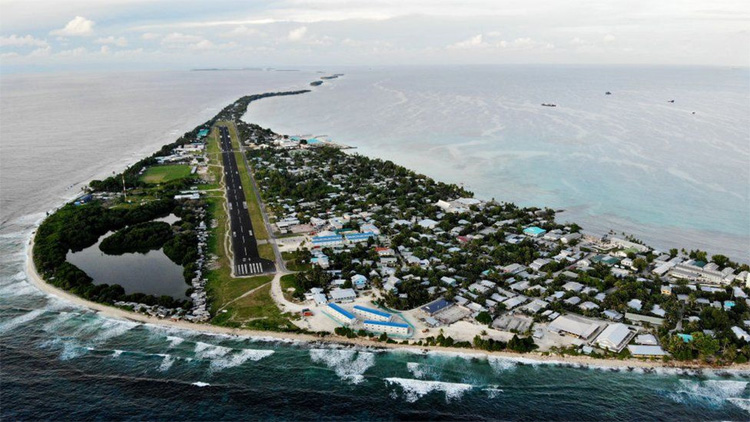Tuvalu, the world’s least visited nation, likely to disappear soon
Tuvalu, one of the world’s most beautiful island destinations, is not only the least visited, but is also one of the places that we might never get to visit in the near future. Reason is the nation might disappear sooner than estimated.
It’s an island country in the west-central Pacific Ocean, and sits around halfway between Hawaii and Australia. It sits on a ring-shaped coral reef encircling a lagoon, with islands along the rim. In short, it’s a beautiful oasis, which is now facing the threat of disappearing completely from the face of the Earth.
With a population of around 12,000 inhabitants, as per the reports, Tuvalu is considered the world’s least visited country. It’s also one of the smallest countries in the world, and has its own currency.
This place also makes for an ideal place to visit, where the ambience is serene, with residents coasting along the island roads on motorbikes, frying fish, taking naps in hammocks, or enjoying beach campfires at night.
The sand amid turquoise waters, lined with dense coconut trees, offer a breathtaking backdrop to enjoy daily average temperatures from 80-85°F (27-29°C).
Formerly called the Ellice Islands, reports add that Tuvalu receives more than two thousand tourists a year. It has only one international airport in the country, which was built by the United States Navy during World War II, in 1943, and is currently only used by Fiji Airways.
Apart from the difficulty to access, Tuvalu is on the list of islands that are most likely to disappear into the ocean in the near future due to rising sea levels. As per the reports, two of Tuvalu’s nine islands are already on the verge of getting swallowed by sea-rise and coastal erosion. Local say that during storms, waves batter the island from the east and the west, thereby kind of ‘swallowing’ the country.
Although the entire nation is coral atolls, the inhabitable stretches of land are maximum just 2 m above sea level. And if the reports are to go by, the tides have been rising about 3.9 millimeters per year.


Comments are closed.